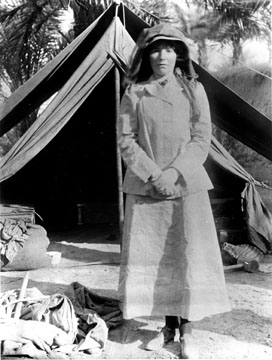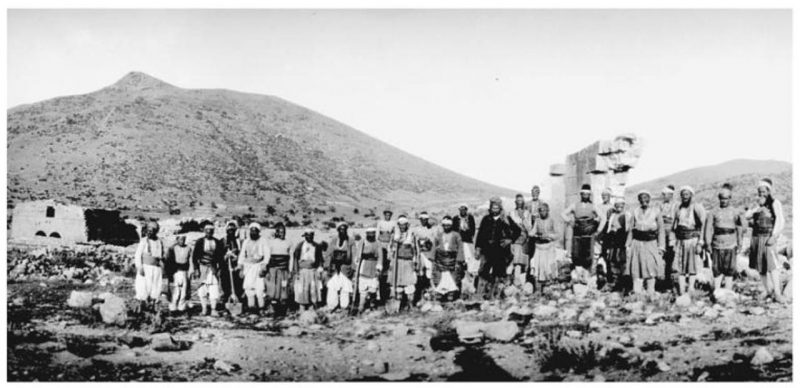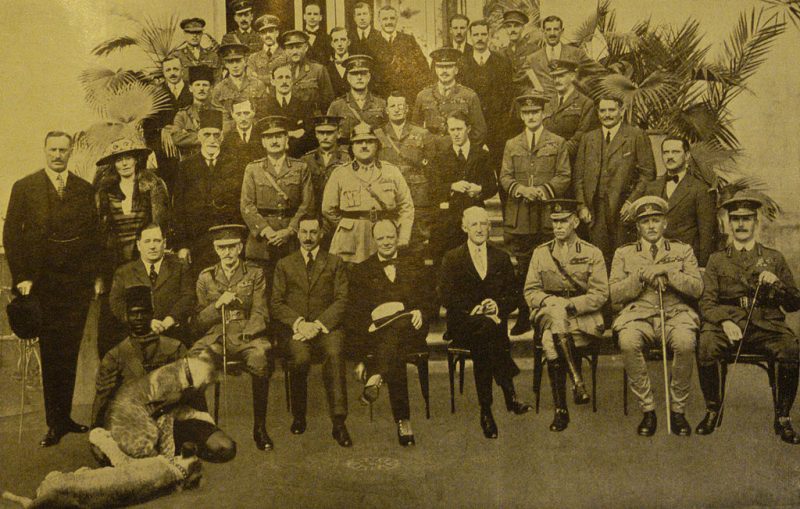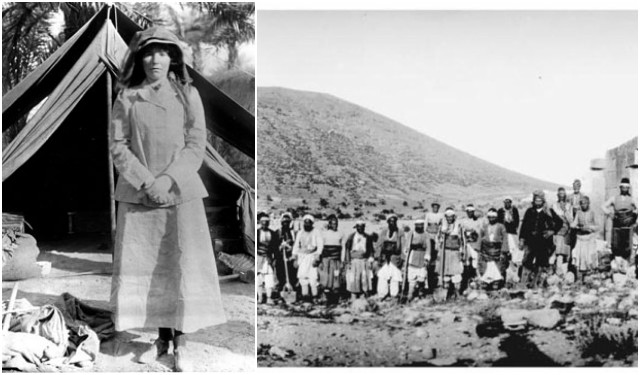Gertrude Bell was born on 14 July 1868 in Washington New Hall, County Durham, England, into a wealthy family of ironmasters. Her mother died shortly after the birth of her younger brother in 1871, and her father remarried five years later.
She received her early education from Queen’s College and then went to Lady Margaret Hall, a women’s college at Oxford University. She graduated with high honors in history. Gertrude Bell became the first female to get a first-class degree in modern history at Oxford.
In 1892, Gertrude went to Tehran, Persia, (now Iran), to visit her uncle Sir Frank Lascelles, who was the British ambassador in Tehran. In 1899, she studied Arabic, Persian, and Turkish. She spent the years before World War I traveling around the world and developing a passion for archaeology.

In 1899, she went again to the Middle East, visiting Palestine and Syria. In 1900, she visited the Druse in the mountains of southern Lebanon. Bell was often back in the Middle East during the next decade, extending her travels to Asia Minor.
Bell traveled alone except for Arab servants and stayed in tents, becoming the first woman ever to travel alone in the Syrian desert. She visited many ruins along the way and became interested in archaeology. Bell’s love for the Arab people made her their representative, and for many, she became known as “El Khatun”, the Lady of the Court.
Her knowledge of history and languages earned the respect of the local rulers, and they referred to her as Queen. She wasn’t just a tourist in the Middle East: she was also an archaeologist, cartographer, and photographer.

She spent almost two years in the Arabian Desert as an explorer, cartographer, photographer and archaeologist and it was her knowledge of the tribes, geography, and politics of the area that attracted the attention of British Intelligence.
She became the first woman officer in the history of British military intelligence, working at the Arab Bureau in Egypt with TE Lawrence, (the famous “Lawrence of Arabia”). Her knowledge was to be of great value and helped formulate the British strategy of encouraging the Arabs to revolt against the Turks.
Bell moved to Basra and was given the title of Oriental Secretary, and later she moved to Baghdad where she became active in nation building.
Bell was involved in the political negotiations that divided the Arab world into new countries and established British political influence in the Middle East. She helped place the Hashimite ruler Faysal I on the throne of Iraq in 1921.

Faysal appointed her Director of Antiquities, and she spent the last three years of her life creating the Iraq Museum. The principal wing of the museum was named after her.
Bell died of an overdose of sleeping pills on the night of July 11-12, 1926, at her home in Baghdad.
